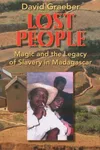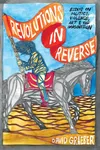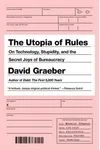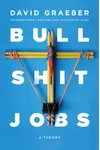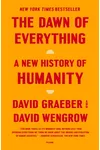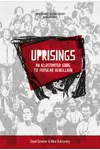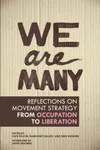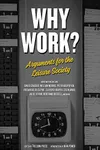Picture an American anthropologist who turned economics and history upside down with wit and rebellion—meet David Graeber! A scholar, activist, and anarchist, Graeber’s books like Debt: The First 5000 Years and Bullshit Jobs sparked global conversations, blending sharp intellect with a knack for challenging the status quo. His ideas didn’t just live on pages; they fueled movements and reshaped how we see work, debt, and society.
Before his untimely passing in 2020, Graeber became a beacon for those questioning conventional systems, leaving a legacy that’s as vibrant as his storytelling. Ready to dive into his world? Let’s explore the man who made anthropology thrilling!
The Making of David Graeber
Born on February 12, 1961, in New York City, David Graeber grew up in a working-class family with radical roots. His mother was a union organizer, and his father fought in the Spanish Civil War, planting seeds of activism early on. Graeber’s academic journey took him to the University of Chicago, where he earned a PhD in anthropology, studying communities in Madagascar. His fieldwork wasn’t just academic—it shaped his distrust of hierarchical systems, setting the stage for his revolutionary ideas.
By the late 1990s, Graeber was teaching at Yale, but his outspoken activism led to his controversial departure. Undeterred, he joined the London School of Economics, where his writing and organizing flourished, cementing his role as a public intellectual.
David Graeber’s Unforgettable Works
Graeber’s books are like intellectual rollercoasters—rigorous yet accessible, blending anthropology, history, and a dash of mischief. His 2011 masterpiece, Debt: The First 5000 Years, rewrote the history of money, arguing that debt predates coins and shapes human relationships. It’s not just a book; it’s a lens for understanding power and morality across civilizations.
In Bullshit Jobs: A Theory (2018), Graeber tackled modern work culture, coining the term for jobs people feel are meaningless. With humor and data, he exposed how bureaucracy creates pointless tasks, resonating with workers worldwide. Other works, like The Utopia of Rules (2015), critiqued bureaucratic absurdity, while The Dawn of Everything (2021, co-authored with David Wengrow), reimagined human history, challenging narratives of inevitable inequality.
His style? Think of a curious friend who’s read everything and can’t wait to explain it with a grin. Graeber wove storytelling with scholarship, making complex ideas feel urgent and human. His anarchist lens pushed readers to question authority, sparking debates in classrooms, protests, and coffee shops.
Why David Graeber Matters
Graeber wasn’t just an academic; he was a catalyst. His ideas inspired the Occupy Wall Street movement, where his phrase “We are the 99%” became a rallying cry. His work reshaped anthropology, economics, and activism, urging us to rethink systems we take for granted. Even after his death, his books fuel discussions on universal basic income, work reform, and social justice.
His legacy lives in readers who see the world differently—more critically, more hopefully. Graeber showed that ideas can ignite change, proving one voice can challenge empires.
About David Graeber
- Born: February 12, 1961, New York City
- Died: September 2, 2020
- Key Works: Debt: The First 5000 Years, Bullshit Jobs, The Dawn of Everything
- Notable Role: Key figure in Occupy Wall Street
Snag Debt: The First 5000 Years and dive into David Graeber’s brilliant, rebellious world—your perspective might never be the same!


